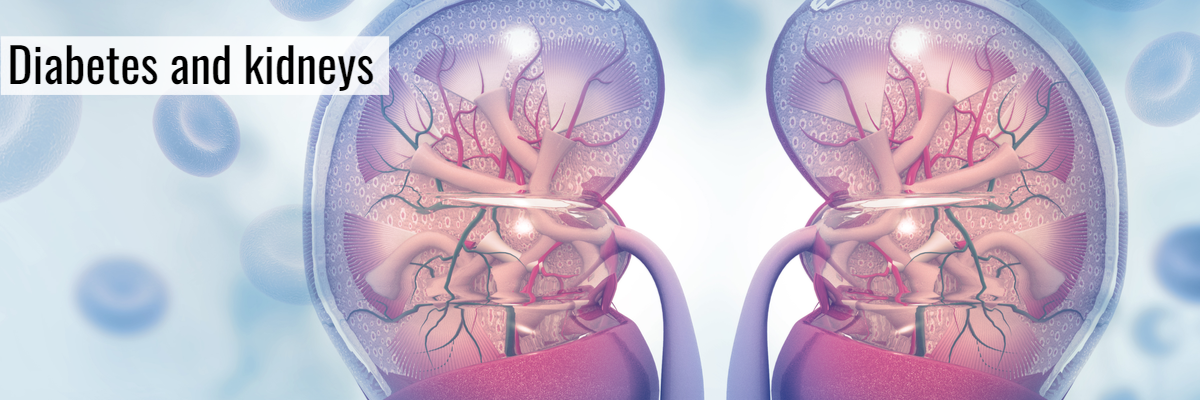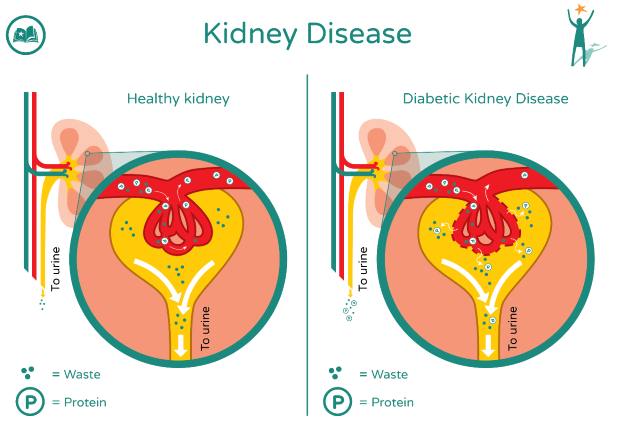Diabetes and kidneys

The kidneys are the body’s filters, and they help eliminate waste products from the body. High levels of blood glucose levels over a prolonged time can cause damage to the kidneys. The kidney’s filtering process can become leaky, and over time kidney function can decline, leading to a build-up of waste products.
The diagram below represents a healthy kidney filtering out waste products with no protein in the urine compared to a kidney that has been damaged through diabetes.

Watch the video below to understand more about how diabetes can affect the kidneys and what you can do to prevent kidney damage:
Good blood glucose and blood pressure control will slow any further deterioration in your kidney function. Sometimes, a tablet called an ACE inhibitor or an Angiotensin Receptor Blocker or SGLT-2 blocker (these tablets have names ending in ‘pril’ or ‘sartan’ or ‘gliflozin’), may be prescribed to protect the kidney.
Occasionally further kidney decline can occur. Unfortunately, although very rare, diabetes is still the leading cause of kidney dialysis and transplantation.



Leave a Reply
You must be logged in to post a comment.